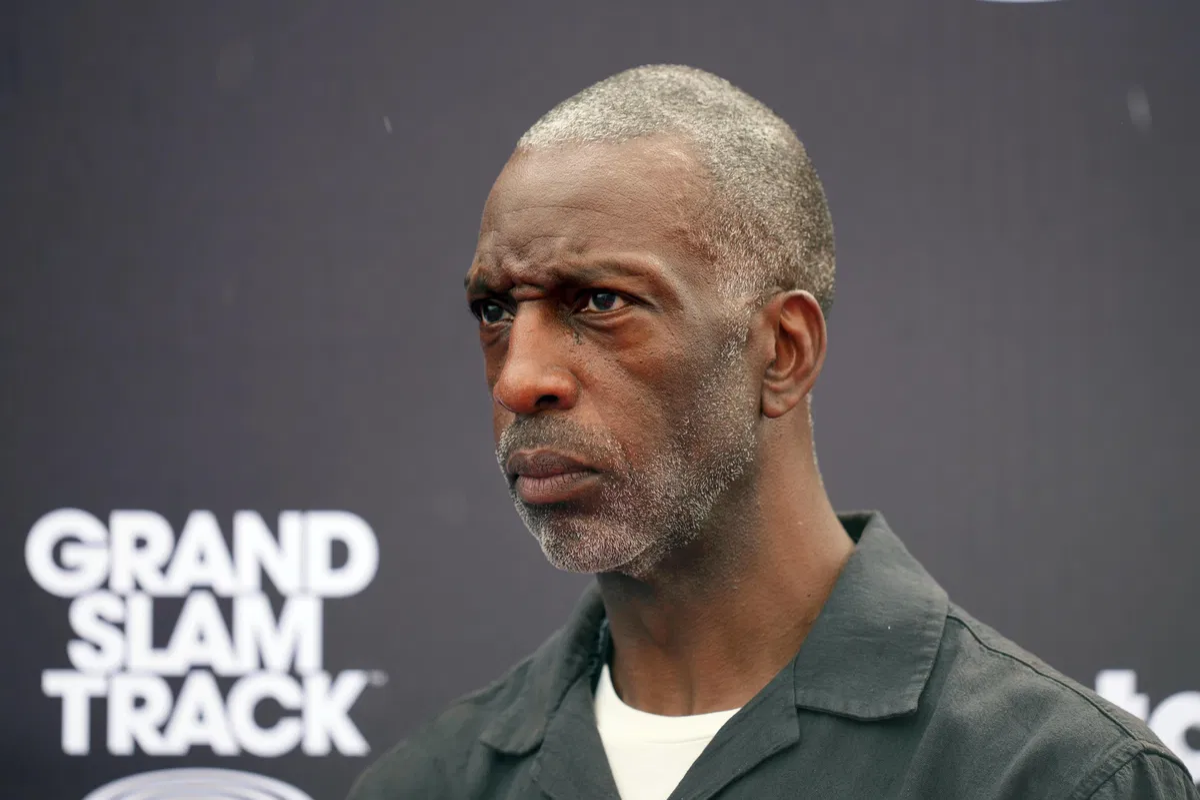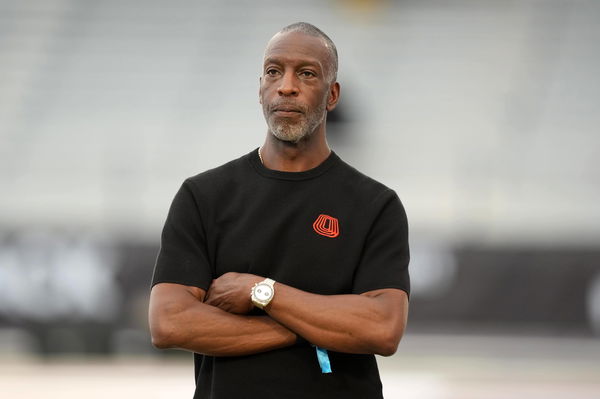
Imago
Credits: IMAGO

Imago
Credits: IMAGO
Grand Slam Track (GST) announced in September 2024 that it had secured more than $30 million in investor backing. In reality, only $13 million ever reached the league’s accounts, while a further $19 million remained an option rather than a guarantee. By the time GST held its first meet in Kingston in April 2025, the league was already operating without the resources it had promised. Within weeks, a shortfall of millions placed the project in acute financial distress.
Watch What’s Trending Now!
The collapse unfolded quickly. GST staged three meets but failed to deliver prize money from the opening event, leaving athletes in limbo. More than two dozen Olympic medalists, including Gabby Thomas, Sydney McLaughlin-Levrone, Melissa Jefferson-Wooden, Kenny Bednarek, and Josh Kerr, are owed sums ranging from $160,000 to $300,000 each. Promotional fees from Kingston were eventually paid, but the $3.2 million prize pool was not. Johnson acknowledged in June that “unspecified proposed investors had gone cold” following global economic uncertainty. Yet documents and testimony reveal that by November 2024, he already knew the promised $19 million would not arrive. And with this revelation comes a new controversy.
ADVERTISEMENT
Despite the funding collapse, tickets for the Philadelphia meet in late May were placed on sale in December 2024. A post by the account @sprtrlrnnr summarized the accusation directly. “Tickets went on sale after this occurred. $19 million not coming in as hoped, not enough to cover the season, and selling tickets anyway.” To critics, the decision to proceed while knowing the league lacked sufficient capital amounts to deception. Some athletes and their agents are now considering legal remedies.
The sequence of events suggests that GST concealed the true state of its finances from both competitors and the public. Athletes were first told that delays were due to drug-testing protocols. Behind closed doors, Johnson’s team debated canceling the Philadelphia event altogether. According to people close to the matter, the meet continued despite the absence of a confirmed investment. Eldridge, a $70 billion asset management company linked to Chelsea and the Los Angeles Dodgers, withdrew after attending Kingston. With that option gone, the league had no viable path to cover a $12.6 million prize commitment plus appearance fees.
ADVERTISEMENT
Tickets went on sale after this occurred. $19 million not coming in as hoped, not enough to cover the season, and selling tickets anyway. https://t.co/DKILcB3Rr5 pic.twitter.com/C2FMd4oV3Q
— sprtrck (@sprtrlrnnr) August 28, 2025
Winners Alliance, GST’s lead investor, insists it had no binding responsibility to provide further capital beyond the initial $13 million. Its representatives held a seat on GST’s board, but the additional $19 million was contingent on conditions that were never met. Those familiar with the arrangement say Johnson assumed Winners might intervene if the project faltered, given its stated mission to “equip world-class athlete groups with the resources needed to protect and maximize their collective rights.” Instead, by last November, Winners had already indicated it would not advance further funds.
ADVERTISEMENT
GST has pledged to return for a second season, though its debts now exceed $14 million and its credibility is damaged. For Johnson, once regarded as a model of professionalism in athletics, the challenge extends beyond repairing finances. And amid these growing troubles, Michael Johnson admitted Grand Slam Track expanded too quickly and pledged a more cautious future.
ADVERTISEMENT
Michael Johnson admits Grand Slam Track rushed its debut and vows caution ahead
Michael Johnson conceded that the launch of Grand Slam Track had been burdened by haste, a recognition that came with both pride and regret. Reflecting on the inaugural season, he admitted that the venture’s eagerness to establish itself quickly had compromised its ability to sustain operations smoothly. “We probably went too fast,” he remarked, acknowledging the need for restraint in the future. It was an observation rooted not in defeat but in hard-earned clarity, as the league worked to steady itself for the years ahead.

Imago
Track & Field: Grand Slam Track Miami May 3, 2025 Miramar, FL, USA Michael Johnson at the Grand Slam Track Miami at Ansin Sports Complex. Miramar Ansin Sports Complex Florida United States, EDITORIAL USE ONLY PUBLICATIONxINxGERxSUIxAUTxONLY Copyright: xKirbyxLeex 20250503_szo_al2_0116
He spoke candidly about the restless energy that defined his own role in guiding the project through uncertainty.
ADVERTISEMENT
“It’s what I wake up in the middle of the night working on and thinking about, and what I wake up every morning,” he said, a description that revealed the relentlessness of both the challenge and his commitment. While Johnson expressed pride in the first-year broadcasts, which surpassed expectations on The CW Network, he did not gloss over the structural flaws that had emerged. The admission that GST needed to become “more cautious” was his way of drawing a line between the ambition of its launch and the discipline required for its continuation.
ADVERTISEMENT
The season had demonstrated promise but also revealed the cost of attempting too much, too quickly. Johnson accepted that mistakes had been made, and his words carried the weight of a man determined to learn rather than merely defend. The frank recognition of overreach placed him in the difficult position of reconciling early achievements with the reality of course correction.
For Johnson, the path forward lay in slower, more deliberate steps, an approach that he insisted would define GST’s second chapter. However, now he must answer why a league marketed as athlete-first continued to sell tickets when its leadership knew the money to sustain operations had vanished.
ADVERTISEMENT
ADVERTISEMENT
ADVERTISEMENT